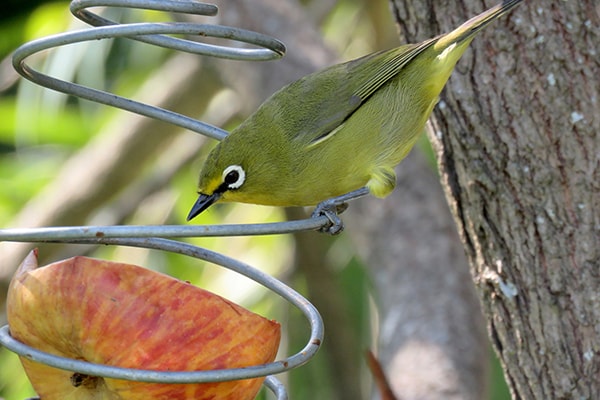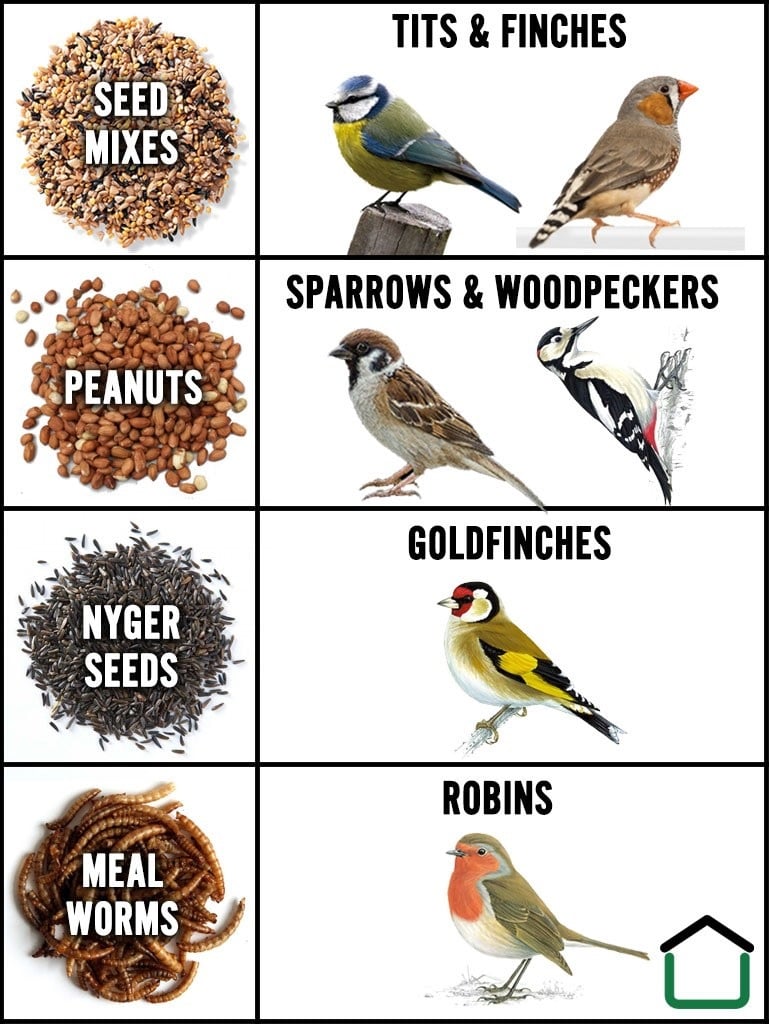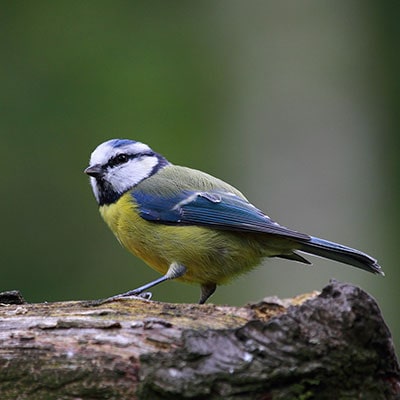
Birds are undoubtedly the most common visitors to our gardens, bringing with them music, colour, and charisma – there is no wonder that so many of us are encouraging and attracting birds into our gardens. Many of the birds that are visiting our gardens will be making use of the nesting facilities and the feeding opportunities on offer. It has been estimated that 75% of gardens are providing food for wild birds at some point during the year.
Our gardens are a great place to start when studying birds and their behaviour. As well as being a joy to observe, they are helping out our gardens…
Why are birds important for our garden?
“Birds are important because they keep systems in balance: they pollinate plants, disperse seeds, scavenge carcasses and recycle nutrients back into the earth…” —Melanie Driscoll, Director of bird conservation for the Gulf of Mexico and the Mississippi Flyway
Welcoming wildlife into your garden is a great thing – a garden that is good for wildlife is likely to be a stable ecosystem and when integrated with the landscape around it, it provides a diversity of micro-habitats which is ideal for wildlife to flourish. Birds, in particular, make a great addition to any garden; they pollinate plants, spread seeds and help with pests.
A number of plants rely on birds to disperse their seeds; in return, the plants offer nutritious fleshy fruits to attract the birds to take the seeds which are hidden inside the tasty looking berries. Birds will eat these berries and as the seeds inside have tough external coats that help to protect them from the digestive system of birds, this allows them to be deposited once they have passed through the bird’s body and dropping new seeds into unexpected places allowing new plants to grow and spread. If you have a different plant in your garden which you don’t remember planting then there’s a very good chance it came from a bird!
How to attract birds to your garden
Feed them
The most obvious way to encourage birds into your garden is by providing food, the most natural way to do this is by growing it. If your garden has fruit, berries, seeds and nuts then this will be a haven for birds, especially during late summer and autumnal months. Also, by attracting wildlife into your garden such as insects and other invertebrates should encourage birds – these are a bird’s main food source. Long grass, hedges, trees, flowers, ponds, dead wood and compost heaps will be thriving with insects and therefore perfect for birds to feast upon.
Use a variety of feeding techniques, food and locations to appeal to a wider range of birds. There are many varieties of birds and all have different preferences – some prefer sunflower seeds and bird feeders while larger birds may prefer a bird table and others feed on the ground. Fat balls which can be bought at very little expense and provide a great calorie burst for hungry birds in winter months and during the breeding season, mealworms will provide a great protein source for birds with hungry chicks to feed.
Feeding for your favourite species – see our infographic below which shows what the favourite food is for the most common species of birds found in your garden….

Provide shelter
As well as feeding birds in your garden, shelter is one of the essential things birds need to survive. Providing somewhere for them to roost and breed is a great thing to do for many species and a great way to encourage them into your garden.
Evergreen trees, thick bushes, hedges, and ivy are ideal natural sources of shelter and will be snapped up by numerous species. If your garden lacks natural shelter, you can install bird boxes or nest boxes which encourage birds to mate and stay within your garden.
If space allows then try placing nest boxes with a variety of shaped holes for different varieties of birds but try not to place multiple nest boxes too close together as some birds are territorial and won’t use the box if it’s too close to others. Try to position your boxes in quieter parts of your garden and not in exposed areas facing harsh weather conditions and direct sunlight. During winter it’s great to provide a shelter for birds to keep warm, install nest boxes in dense hedges with plenty of shrubs and climbers which will provide thick cover during the winter months.
Ensure nesting boxes are dry and have ventilation holes, clean your nest boxes once a year – this is best to be done during the autumnal months. Proving shelter will ensure a safe and secure home for birds in your garden and will be even more rewarding for you when you see families of birds flourishing in your garden.
Provide water
A fresh supply of clean water is also essential for birds, a bird bath is a great addition to your garden, not only is it attractive but it allows birds to perch, bathe and drink. Create a bird bath which has a varied depth for various sizes of birds and add some rocks to the middle so the birds will have a place to perch. Running water is especially a great attraction to birds, try propping a garden hose against the bird bath and allow a dribble of water to escape which will create a slight ripple.
Clean bird baths frequently and replace the water every couple of days, the birds will reward you for this by visiting regularly.
Keeping birds safe in your garden
Some foods can be harmful to birds, it’s best to check before you put it out. Salty foods and dried foods can be fatal to birds, cooking fat can breed bacteria and cause disease and milk is harmful to birds as they can’t digest it properly. Dry bread should also be moistened as it can swell in bird’s stomachs. Another great hazard is choking, especially for young birds so smaller pieces are recommended. Like humans, birds can also suffer from food poisoning so mouldy food and raw meat is also a big no-no.
Bird feeders should be cleaned regularly – dispose of old food which can spoil and clean up bird droppings as these can build-up and spread disease. Don’t forget to also keep an eye out for cats, ensure your bird feeder is out of a cat’s reach and prickly bushes and trees aren’t intruding on the feeding area. Squirrels are also known for being a little sneaky and stealing from a bird feeder, try to position your feeders so they can’t jump onto them from nearby bushes and trees.
Remember that if you start feeding birds in your garden then it’s best not to stop – they will become dependent on your help and will likely struggle to survive if your supply of food stops.





